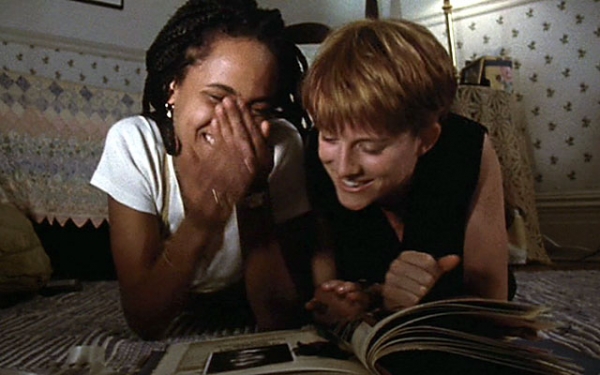The weather in Michigan this winter is stubbornly cold. March has arrived, but spring seems distant. Used to be on days of obstinate gray, I would curl up on my sofa and read a great novel, but lately I can only read a few pages before the author’s beautiful prose charges my insecurities about my own writing. Instead of relaxing I’m analyzing every sentence, thinking again of that scene I need to fix. Then I’m worrying, “I’ll never finish this novel.” I will be a failure. So instead after I’ve finished writing for the day, I wrap myself in a fleece blanket, and I watch a movie, often a romantic comedy.
I have a strange, contradictory love for the romance genre. I know the genre can perpetuate ridiculous (and damaging) myths about sexuality, romance and relationships, etc, and there should be more romantic comedies that center on alternative types of love. We’re loved by our families, our friends, our pets—those relationships can be romantic without involving sex or marriage. I could discuss what’s wrong with the romance genre for days, but romantic comedies inspire a warm pleasure within me regardless of whether I’m in a relationship and in spite of what I recognize as its flaws.
The really good romantic comedies have an acerbic aftertaste, a critical bite, a farcical underbelly e.g. Clueless, Emma, I Can’t Think Straight, Juno, As Good As It Gets, Amélie. I had in mind months ago that I wanted to write something about romantic comedies, but I have suffered from essayistic crisis—“Why should anyone care?” “What do I really want to say?” Before writing this post, I re-watched The Incredibly True Adventures of Two Girls In Love, a cinematic critique of early 90s American culture cushioned by a cute love story about two awkward teenagers falling in love for the first time.
It’s a miserably icy day as I write, and I’m in need of warmth. The romance genre is dying, apparently. My unwieldy novel nags at my confidence. I have no idea what I will do or where I will be in four months. There seems to be more pressing life concerns, but this might be why I need The Incredibly True Adventures of Two Girls in Love. In the film Randy Dean, the outcast, falls in love with the popular girl Evie. Randy’s white. Evie’s African American. Randy’s of a working class family. Evie’s a member of an upper middle class family. Randy will not graduate from high school with her class. Evie is well-educated and college-bound. Opposites attract. Romantic comedies use this convention often, but there’s something oddly charming about its use here. It’s difficult not to be charmed by Randy and Evie’s awkward navigation of love how they tiptoe around their desires, how they subtly suggest secret dates, how they deal with the anxiety of meeting each other’s family, how they struggle with the uncertainty of where their lives are headed.
During one of my favorite moments in the film, Randy Dean, the adorably cute butch who writes love notes and reads Whitman’s Leaves of Grass while high, admits to Evie, “I don’t want to shock you or anything, but I really want to hold your hand right now. I mean, I’ve been wanting to hold your hand all day.”
Evie’s never been with a girl before. She doesn’t understand what’s the big deal about girls holding hands.
“We could get the shit kicked out of us is all.”
Evie doesn’t believe her. She doesn’t think the world could be that cruel.
“God, Evie you are so sheltered,” says Randy, a line that could so easily be patronizing, that could so easily mean that the two are ill-fated. The conversation transitions smoothly from innocent flirtation to real fears of violent homophobia. This isn’t just a scene about two girls in love, but it is their love that endears us, helps temper the existence of a polar vortex, ease the reality (necessity) of rejection, calm the struggle of writing a novel. I’m cheesy, I know.
Evie holds out her hand. She says, “Then unshelter me.”
Randy grabs for her hand.


